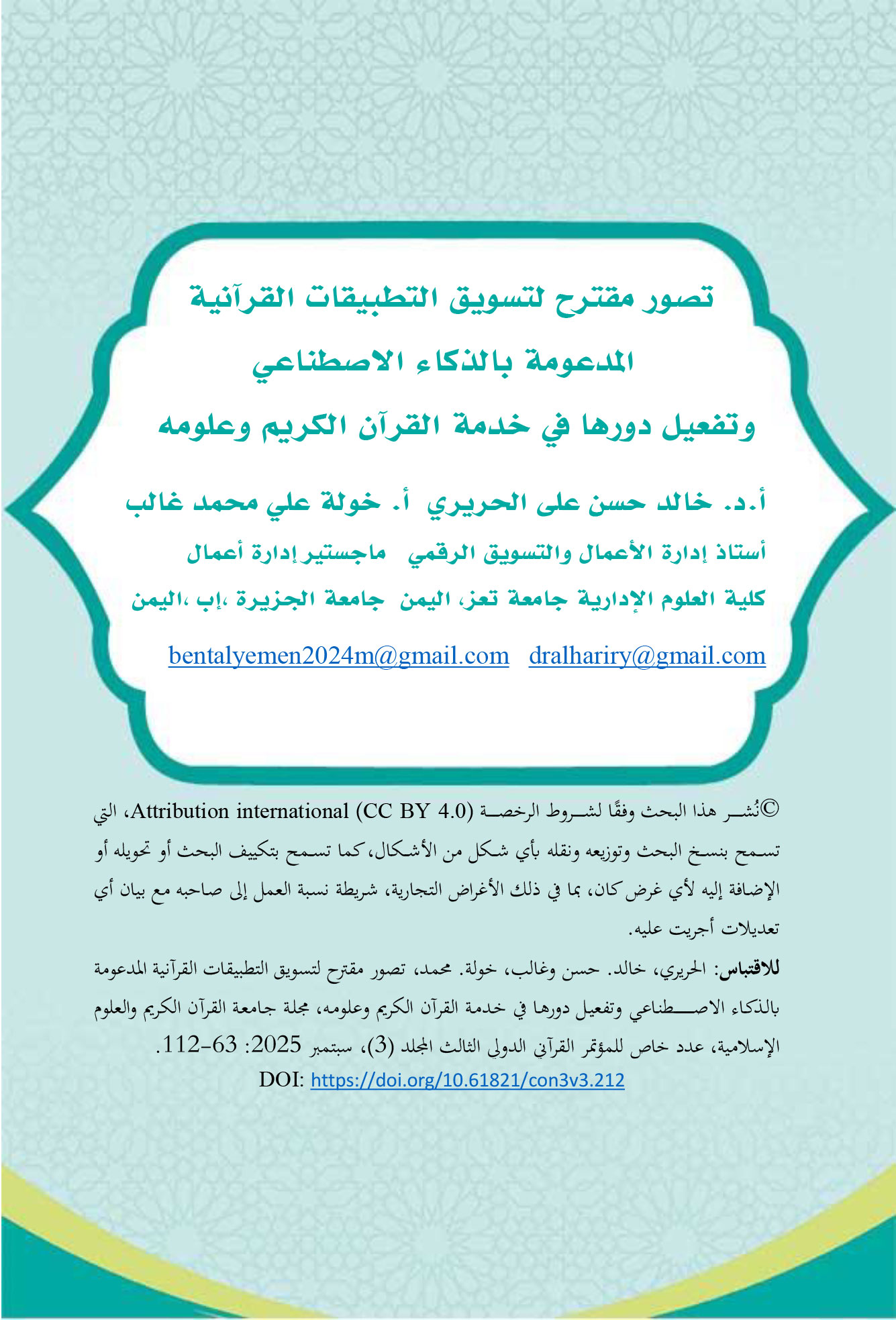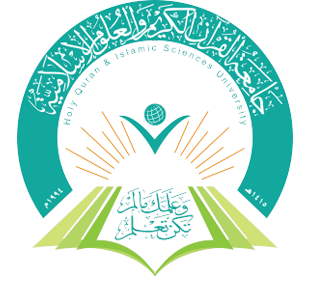A Proposed Perception for Marketing of Quranic Applications Supported by Artificial Intelligence and Enhancing Their Role in Serving the Holy Quran and Its Sciences
DOI:
https://doi.org/10.61821/con3v3.212Keywords:
Service of the Holy Quran, Artificial Intelligence, Quranic Applications, Application MarketingAbstract
The current study aimed to develop a proposed perception for marketing Quranic applications supported by artificial intelligence and activating their role in serving the Holy Quran and its sciences, by analyzing models of Quranic applications supported by artificial intelligence and identifying the fields, regulations and challenges of using these applications in serving the Holy Quran and its sciences.
The researchers adopted the descriptive analytical approach by reviewing many previous research and studies related to the subject of the study, and the electronic survey (E-survey) of a sample of Quranic applications supported by artificial intelligence available on mobile application store platforms (Google Play and Apple Store), and evaluating them from several aspects, including the extent of the spread of these applications, user interaction with them, their characteristics, areas of service to the Holy Quran and its sciences, and the most prominent artificial intelligence techniques they use.
The study concluded with several results, the most prominent of which are: the diversity of the fields of service of the Holy Quran and its sciences in the Quranic applications - the subject of the study - between reading, reciting, memorizing, listening to, interpreting and translating the Quran into multiple languages, in addition to the diversity of artificial intelligence techniques used in the Quranic applications - the subject of the study - and the most prominent of these techniques are: speech and voice recognition, natural language processing, smart assistant, smart search, interactive learning, algorithms, machine translation..
The results of the study also showed a deficiency in marketing many Quranic applications and their spread among members of society, and among the manifestations of this deficiency are the weak downloads of these applications and the weak interaction of users with them despite the passage of a long time since the release of these applications and their availability on mobile application store platforms.
In light of the results of the study, a proposed perception was developed that includes a set of proposed elements, steps, and mechanisms for marketing Quranic applications supported by artificial intelligence and activating their role in serving the Holy Quran and its sciences.
Downloads

Downloads
Published
Issue
Section
License
Copyright (c) 2025 Journal of the University of Holy Quran and Islamic Sciences

This work is licensed under a Creative Commons Attribution 4.0 International License.
©This article is an open access article distributed under the terms and conditions of the Creative Commons Attribution (CC BY) license












